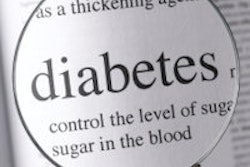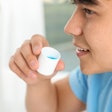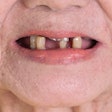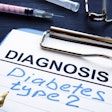Delta Dental of New Jersey is launching a pilot program for July that enables a group of its network providers to incorporate A1c screenings for patients at risk for diabetes, and also encourages screenings and appropriate referrals for patients presenting with signs and/or symptoms of obstructive sleep apnea and hypertension.
The New Jersey State Board of Dentistry ruled that such in-office blood screening is within the scope of licensure in the state but noted that "such testing is not presumed to be the standard of care," according to Delta Dental. The screening test, known as HbA1c or A1c, can be performed as a finger prick blood test that may be analyzed in the dental office.
As many as 27 million people visit a dentist and not a physician in a given year, according to a study by the ADA Health Policy Institute (American Journal of Public Health, April 2014, Vol. 104:4, pp. 744-750), and dentists are a critical "front door" toward a patient's overall health, Delta Dental noted. The screening would allow safer, more comprehensive care to be provided, while allowing the dental community to help address one of the country's most significant healthcare problems.
Diabetes is associated with serious dental issues, from delayed wound healing to periodontal disease. Knowing that a patient has diabetes may affect a dentist's decision regarding extractions and other treatments. For positive A1c screenings, dentists should refer patients to a physician for a formal evaluation, diagnosis, and treatment.
Screening for chronic diseases in dental offices could reduce U.S. healthcare costs by $102.6 million annually, according to the ADA study.
Delta Dental also cited the results of a new prospective study of 500 dental patients who completed a survey and submitted to an in-office finger stick blood draw to measure A1c levels. Researchers found that 19.2% of patients were prediabetic and 1.2% had diabetes. None of the patients had a prior diagnosis of diabetes or prediabetes. The study findings were presented at the recent American Association of Clinical Endocrinologist 2015 Annual Scientific and Clinical Conference in Nashville, TN.


















